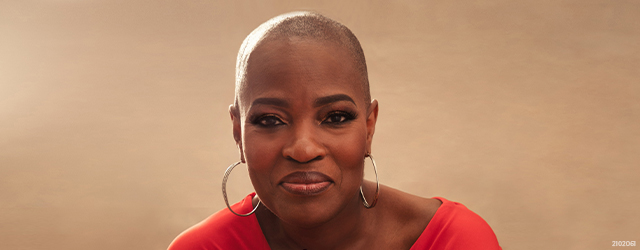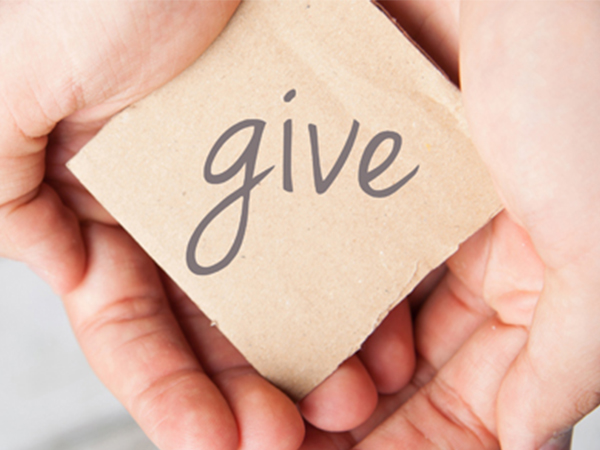Desirée Walker: Empowering Survivors Through Education and Advocacy

At the age of 38, Desirée Walker was diagnosed with breast cancer. Shortly after her eighth year of being cancer-free, the diagnosis recurred at age 47. Now, Desirée serves as an advocate for patients by speaking openly about her diagnoses to audiences nationally and internationally.
Desirée didn’t foresee herself having a career in advocacy. She says, “I never thought of advocacy—or patient advocacy—growing up.” After her cancer diagnosis, she realized she needed to educate herself on her diagnosis and research her options.
“I realized it was important to get out there and tell my story.” She feels that in the African American and Afro-Caribbean community, cancer isn’t being spoken about openly. Desirée says, “I took it upon myself to address this stigma by not being silent.”
She then connected with her first organization, the Witness Project of Harlem, where she began to develop her voice as a patient advocate. This organization raises awareness about breast and cervical cancer through their outreach efforts in New York City’s African American communities. She also served on the Young Survival Coalition as President of the Board of Directors. She is a member of the National Coalition for Cancer Survivorship’s (NCCS) CPAT and Redefining Functional Status Steering Committees, The Central Institutional Review Board for the National Cancer Institute and Society of Integrative Oncology’s (SIO) Patient Advocate Committee, among many other roles.
Desirée is passionate about addressing cancer health disparities experienced by the African American community. Having served as a facilitator of a support group for women of African American heritage who have been diagnosed with breast or ovarian cancer, she says, “These issues come up frequently. These women think, ‘I don’t know if I’m making the right decision because I don’t know if I have all the information that I need.’ Some of these women don’t have access to information. They don’t have access to some of the technology. These types of things are unacceptable.” She mentions other differences in health care that the African American community face—access to screenings, difficulties dealing with insurance, and lack of representation in clinical trials.
As Desirée began to rebound from her second bout with cancer, she decided she wanted to get more involved in legislative advocacy. While attending the San Antonio Breast Cancer Conference in 2012, she met Karen Russell Mills, Manager for the Patient Advocacy program at the AACR, who in turn introduced Desirée to the AACR Scientist↔Survivor Program. She was encouraged to apply and thus began her relationship with the AACR. She attended several AACR Hill Days—which are an annual event that brings a group of AACR members to Washington, D.C., to advocate for robust, sustained, and predictable funding for cancer research—since 2012, and she attended sessions at the AACR Annual Meeting.
Desirée provided a patient advocate perspective at numerous events, like National Cervical Cancer Coalition’s Cancer Policy Roundtable, Memorial Sloan Kettering Cancer Center’s National Minority Cancer Awareness event, and the 12th AACR Conference on the Science of Cancer Health Disparities.
Desirée understands that survivor voices are extremely important in legislative advocacy, explaining, “If a survivor is given a platform to tell you what their life has been like after a diagnosis, it’s now more personal. Being able to tell a story is important. Stories are captivating. Stories are meaningful. Stories can influence.”
In the coming years, she is focusing her attention on influencing a shift in the clinical trial and research front by including more diverse participants. “No one really thinks about how they’re going to recruit and retain participants for clinical trials. There is little thought put into the participants in these clinical trials. One of the things that is fueling me is the idea of diversity, equity, and inclusion in these trials and in research overall.”
Desirée plans to continue to use her platform to be a voice for the voiceless and pay it forward by educating and empowering patients everywhere. She says, “Information will lead to your empowerment and your ability to discern what’s right for you.”
Learn About the AACR Scientist↔Survivor Program Return to Philanthropy Brief, Spring 2021 Issue

